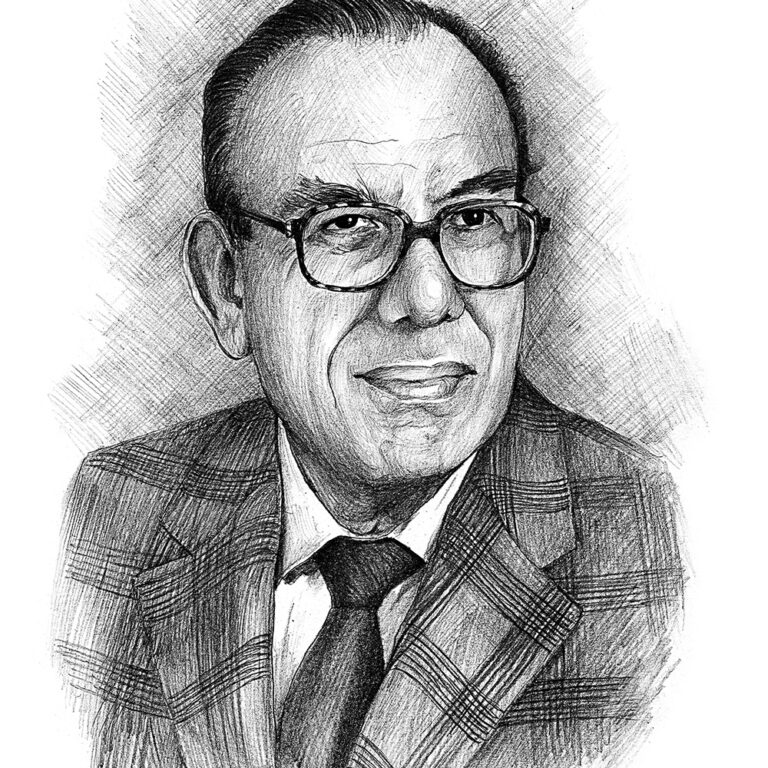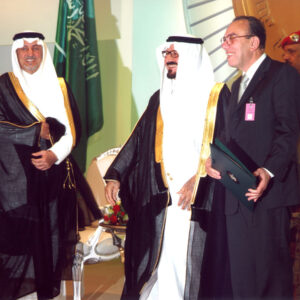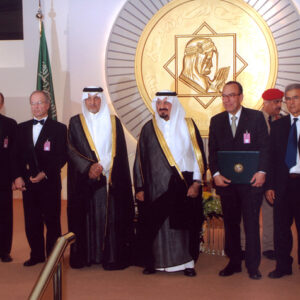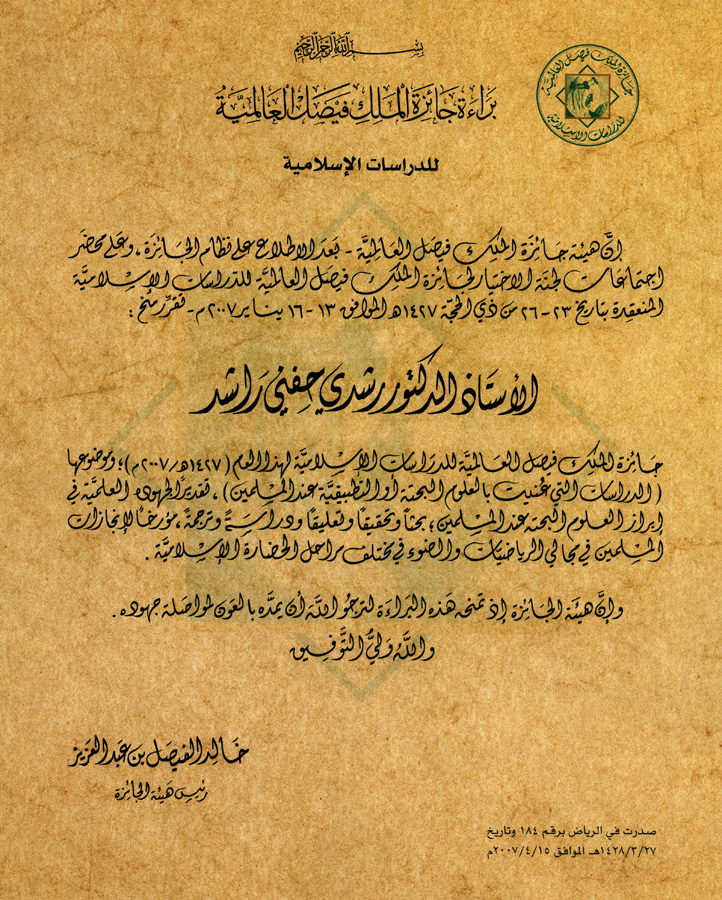

Professor Roshdi Hifni Rashed
King Faisal Prize in Islamic Studies 2007 Laureate
Topic: "Muslims’ Contributions to Pure or Applied Sciences"
Science was a major cornerstone and a component of the Islamic civilization, and it is impossible to fully comprehend the attributes of this civilization without understanding science, especially mathematics

Roshdi Rashed is a world-renowned historian of science and currently an Honorary Distinguished Class Director of Research at the French National Center for Scientific Research (CNRS). His seminal contributions to the history, applications, and development of sciences and mathematics at the hands of ancient Muslim scholars appeared in more than 40 books and 120 scholarly articles. He also initiated and supervised two Encyclopedias of the history of sciences in Islam.
Professor Rashed conducted ground-breaking studies on the probability theory and its applications to social sciences. He also studied the role of mathematics in the experimental optics of Ibn al-Haytham and his successors, and discovered the manuscripts of Al-Ala Ibn Sahl, which embodied the theory of lenses and dioptrics long before European scientists of the 16th century. These findings led him to new insights into the contributions of Ibn Al-Haytham and Kamãl Al-Din Al-Färisi to dioptrics and the Rainbow theory, respectively. He also edited, commented and translated into French all Arabic translations of ancient Greek works in mathematics (most of which were lost in Greek), as well as several previously unknown works of Muslim mathematicians of the 9th Century. These endeavors along with his discovery of four Arabic translations of Diophantus’ Arithmetica – lost in Greek – stimulated his research into the history of diophantine analysis. He studied Diophantus’s underlying algorithms, and was able, by using tools of modern algebraic geometry, to determine the latent methods of Diophantus, and thereby shed new light into the works of later mathematicians like al-Khujandi and al-Khäzin — who invented the integer diophantine analysis — and subsequently Bachet, Fermat, Euler and Lagrange. Professor Rashed also studied a hitherto unknown text of Lagrange on Diophantus and discovered many other texts that enabled him to reconstruct the history of the theory of numbers, showing for instance that the first studies on elementary arithmetical functions were accomplished before 1320 A.D. and that attempts to prove Euler theorem on perfect numbers were due to Ibn al-Haytham. He also edited, translated, and commented on the works of Al-Tusi and Al-Khayyam. Professor Rashed’s enormous contributions were recognized by numerous prestigious awards and honorary degrees.
Professor Rashed has authored around 60 books and more than 100 scholarly articles in addition to his translation of some important relevant texts from ancient languages. His methodology and the originality and depth of his works have earned him respect both in the Arab world and internationally. He is particularly recognized for his illustrious, six-volume book on the history of Arab contributions to science, and his four-volume book on analytical mathematics between the third and fifth Hejira centuries.
This biography was written in the year the prize was awarded.
- He authored many books including:
- Arabic Geometrical Methods and the Philosophy of Mathematics (Routledge Publishing), (2013).
- Ibn al-Haytham and Analytical Mathematics (Routledge Publishing), (2017).
- Ibn al-Haytham, New Astronomy and Spherical Geometry (Routledge Publishing), (2017).
- Ibn Al-Haytham’s Theory of Conics, Geometrical Constructions and Practical Geometry (Routledge Publishing), (2018).
- Light-Based Science (CRC Press), (2019).
- Ibn al-Haytham’s Geometrical Methods and the Philosophy of Mathematics (Routledge Publishing), (2019).
- Founding Figures and Commentators in Arabic Mathematics (Routledge Publishing), (2019).
- Classical Mathematics from Al-Khwarizmi to Descartes (Routledge Publishing), (2019).
- He received many prizes including:
- Sultan Al-Owais Prize in 2014.
- Sheikh Zayed Book Award in 2016.
- Kenneth O. May Prize in 2017.



